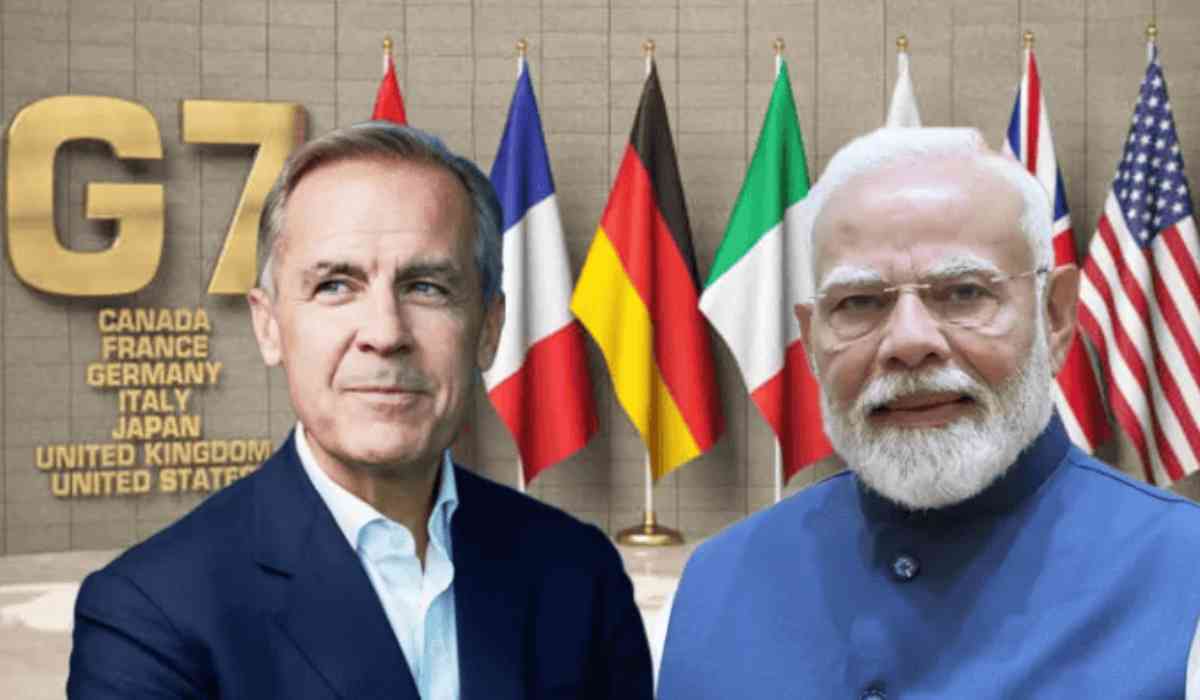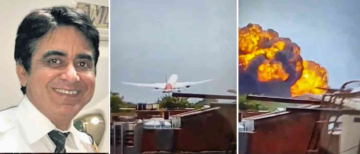As Prime Minister Narendra Modi prepares to attend the G7 Summit in Kananaskis, Alberta from June 15 to 17, 2025, signs of a potential reset in India-Canada relations have emerged. The change in Canadian leadership—Mark Carney replacing Justin Trudeau in March 2025—along with a sweeping law enforcement operation dubbed Project Pelican, signals a new phase in bilateral ties between the two democracies.
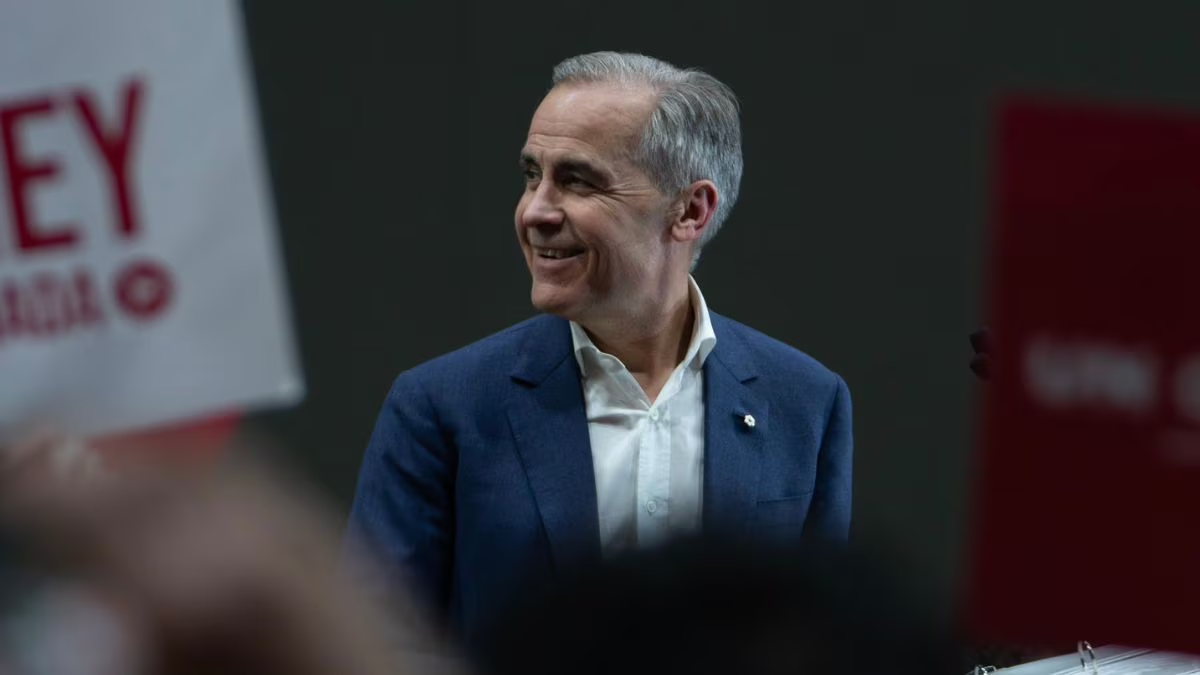
Project Pelican: Canada’s Largest Drug Bust with Anti-India Links
Just days before Prime Minister Modi’s scheduled visit, Canadian authorities launched Project Pelican, an extensive law enforcement operation led by Peel Regional Police that resulted in the largest drug seizure in Canada’s history—479 kg of cocaine valued at CAD $47.9 million (approx. USD $47.9 million).
The bust uncovered a sophisticated narcotics smuggling network with direct links to Khalistan sympathizers and suspected support from Pakistan's Inter-Services Intelligence (ISI). Investigators also suspect backing from Pakistan’s ISI, which allegedly uses Khalistani groups in Canada to smuggle Mexican cocaine and Afghan heroin, with funds being diverted to support anti-India activities including:
-
Financing separatist protests and illegal referendums,
-
Procurement of weapons,
-
Support for Khalistani extremist groups.
The drug network reportedly operated via commercial trucking routes between the US and Canada, with connections to Mexican drug cartels and US-based distributors.
Nine individuals were arrested, seven of whom are of Indian origin and residents of Canada:
-
Sajgith Yogendrarajah (31)
-
Manpreet Singh (44)
-
Philip Tep (39)
-
Arvinder Powar (29)
-
Karamjit Singh (36)
-
Gurtej Singh (36)
-
Sartaj Singh (27)
-
Shiv Onkar Singh (31)
-
Hao Tommy Huynh (27)
This major crackdown occurred shortly before Modi’s high-profile G7 visit, possibly indicating a shift in Canadian law enforcement priorities under Carney’s leadership.
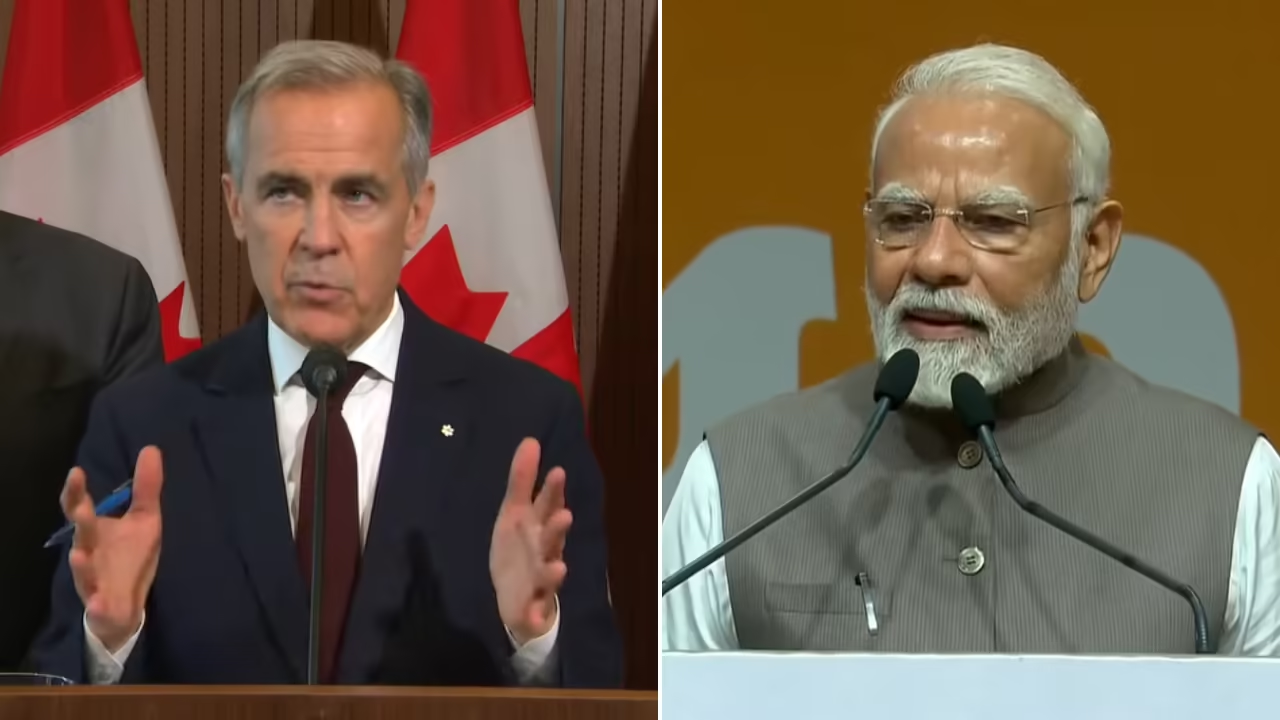
G7 Summit Invitation: A Calculated Diplomatic Move
The summit invitation extended by Prime Minister Carney to Modi was seen by many as a sign of Canada’s renewed interest in mending ties with India. Carney, when asked why he invited Modi despite the strained bilateral relationship, remarked:
“India is the fifth largest economy in the world, effectively the most populous, and central to a number of supply chains... Bilaterally, we have now agreed importantly to continued law enforcement dialogue. I extended the invitation to Prime Minister Modi in that context and he has accepted.”
The G7 Summit, taking place in Kananaskis, Alberta, aims to strengthen partnerships with emerging powers. India, given its strategic importance in the Indo-Pacific and global economy, was seen as a vital participant.
Modi responded warmly to the invitation, congratulating Carney on his election victory and expressing optimism about working with Canada based on shared democratic values and renewed energy.
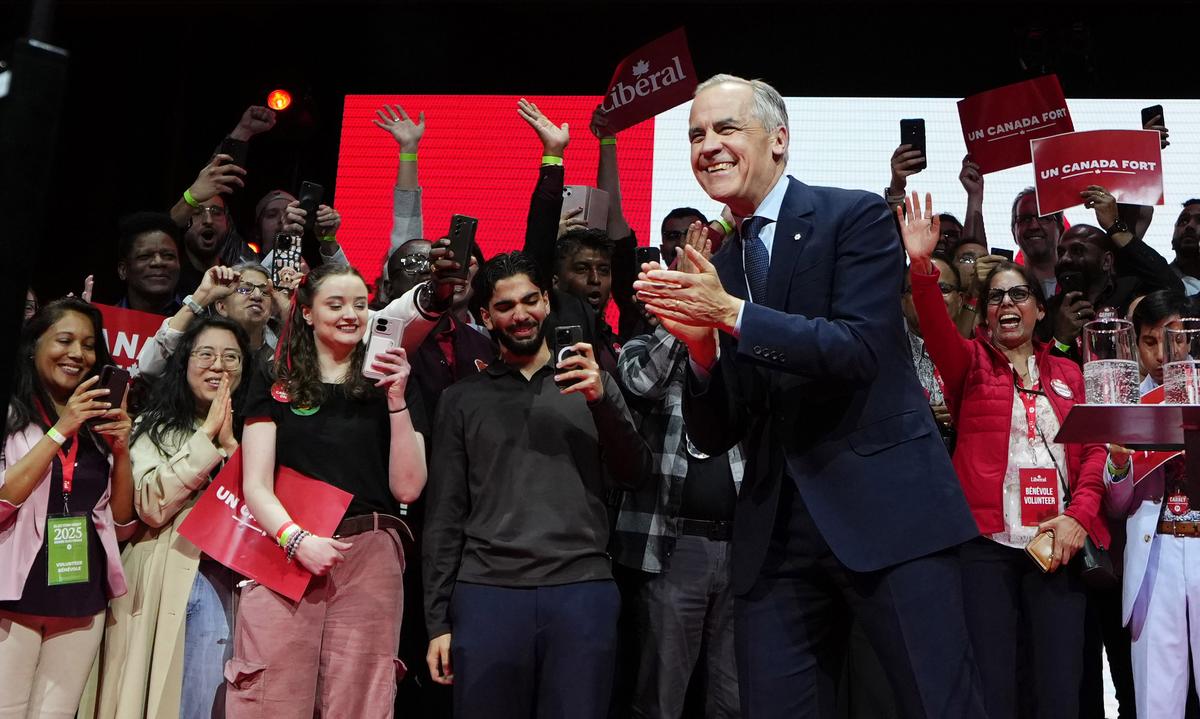
A Troubled Past: The Trudeau Years and Diplomatic Fallout
India-Canada relations had reached a historic low under former Canadian Prime Minister Justin Trudeau. His perceived tolerance—and at times endorsement—of Sikh extremist elements in Canada drew strong rebukes from New Delhi.
Trudeau was heavily criticized for allowing anti-India protests, supporting separatist narratives, and attending events where individuals glorifying violence and terrorism were present. The tipping point came in September 2023, when he addressed the Canadian Parliament, alleging:
“Canadian security agencies have been actively pursuing credible allegations of a potential link between agents of the Government of India and the killing of a Canadian citizen, Hardeep Singh Nijjar.”
Trudeau's statement not only drew fierce condemnation from India, but also triggered a diplomatic crisis, which included:
-
Mutual expulsion of diplomats
-
Closure of three Canadian consulates in India
-
Travel advisories issued by both nations
-
India withdrawing its High Commissioner, citing lack of security assurances
-
Allegations by Ottawa that Indian diplomats were engaged in intimidation, extortion, and even murder, which India strongly denied
The relationship further soured when India labelled Canada a “safe haven for extremism and anti-India activities.”
After a telephonic discussion with PM Narendra Modi, Canadian PM Mark Carney said: “We spoke on the longstanding Canada-India relationship, strong people-to-people ties, and deep commercial links. Importantly, we agreed to continue law enforcement dialogue and address security… https://t.co/B5QZ0YWOP9 pic.twitter.com/QEK01NlHnC— Gagandeep Singh (@Gagan4344) June 6, 2025
Historical Baggage: Air India Bombing and Sikh Separatism
The roots of mistrust trace back to the 1985 Air India bombing, which killed 329 people, most of whom were Canadian citizens of Indian origin. Canada’s perceived mishandling of the investigation and lack of accountability continues to haunt bilateral ties.
India views Khalistani extremism as a grave national security threat. The persistent advocacy for an independent Sikh state, especially from Canadian soil, remains one of the most contentious issues.
Mark Carney’s Ascension: A Possible Reset
Mark Carney’s election in March 2025 is seen as a potential turning point. His early remarks as Prime Minister highlighted a clear desire to diversify trade, rebuild ties with India, and foster a values-based commercial relationship.
During a media interaction in Calgary, Carney stated:
“There are opportunities to rebuild the relationship with India. There needs to be a shared sense of values around that commercial relationship.”
India also struck a conciliatory tone, expressing willingness to rebuild the relationship based on mutual trust and sensitivity.
First High-Level Dialogue: Jaishankar–Anand Conversation
India’s External Affairs Minister S. Jaishankar held a landmark phone call with Canada’s new Foreign Minister Anita Anand on May 26, 2025. The leaders discussed:
-
Enhancing bilateral economic cooperation
-
Reviving shared strategic priorities
-
Fostering mutual academic and people-to-people ties
Anand described the conversation as “productive” and expressed eagerness for future collaboration.
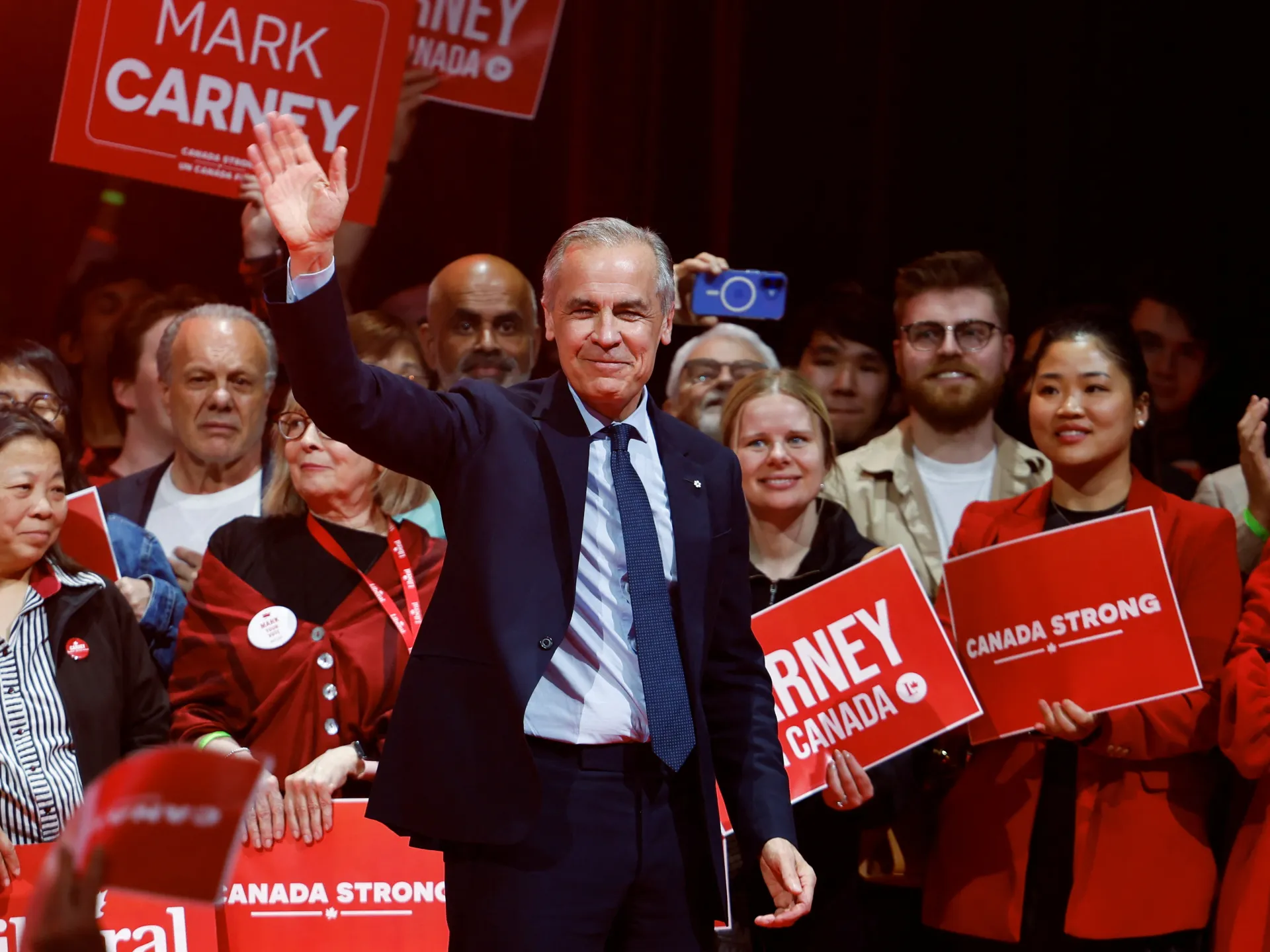
The Road Ahead: Security, Trade, and Student Exchanges
1. Security Cooperation
India insists that addressing Khalistani extremism is the prerequisite for rebuilding ties. The participation of CSIS (Canadian Security Intelligence Service) at the global intelligence summit held during the Raisina Dialogue in New Delhi (March 17–19, 2025) was seen as a significant gesture.
The Joint Working Group on Counter Terrorism, if revitalized, could become a cornerstone for regular dialogue on security threats, thus paving the way for broader collaboration.
2. Trade and Investment
India-Canada bilateral trade in:
-
FY 2022–23: $8.27 billion
-
FY 2023–24: $8.37 billion (marginal rise, mainly due to higher Indian imports)
However, tensions under Trudeau hampered further growth.
Trade Agreements
-
Comprehensive Economic Partnership Agreement (CEPA): Negotiations began in 2010, stalled in 2021.
-
Early Progress Trade Agreement (EPTA): Talks paused in September 2023 due to diplomatic fallout.
Reviving EPTA could serve as an interim framework to boost trade while laying the groundwork for CEPA.
Sectors with Growth Potential
-
Renewable energy
-
Clean technology
-
Agriculture
-
Automobiles
-
Information Technology (IT)
-
Infrastructure development
3. Education and Student Mobility
India has long been a top source of international students for Canadian institutions, especially in Toronto, British Columbia, and Montreal.
However, diplomatic tensions and policy changes under Trudeau created significant challenges:
-
319,000 Indian students were enrolled in Canada in 2023.
-
A 31% drop in study permits was recorded in early 2025 due to visa delays, stricter scrutiny, and uncertain post-study work options.
The normalisation of ties under Carney could ease:
-
Visa processing timelines
-
Immigration pathways
-
Post-graduation employment opportunities
An MoU on Higher Education, renewed in 2018, still provides a framework for academic cooperation.
A New Beginning Amid Lingering Challenges
The current trajectory of India-Canada relations suggests a tentative but promising reset. While substantial legacy issues remain—including historical mistrust, security concerns, and unresolved trade talks—the leadership change in Ottawa and proactive steps like Project Pelican reflect a strategic shift in Canada’s approach.
With sustained engagement, a focus on mutual interests, and institutionalised security cooperation, India and Canada can move beyond recent hostilities. The upcoming G7 Summit could very well mark the beginning of a new phase of cooperation, built on shared democratic values, economic synergy, and geopolitical alignment.
With inputs from agencies
Image Source: Multiple agencies
© Copyright 2025. All Rights Reserved Powered by Vygr Media.

